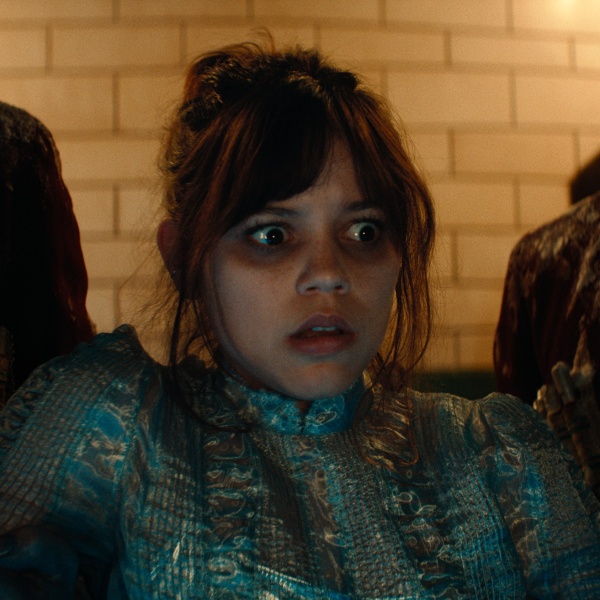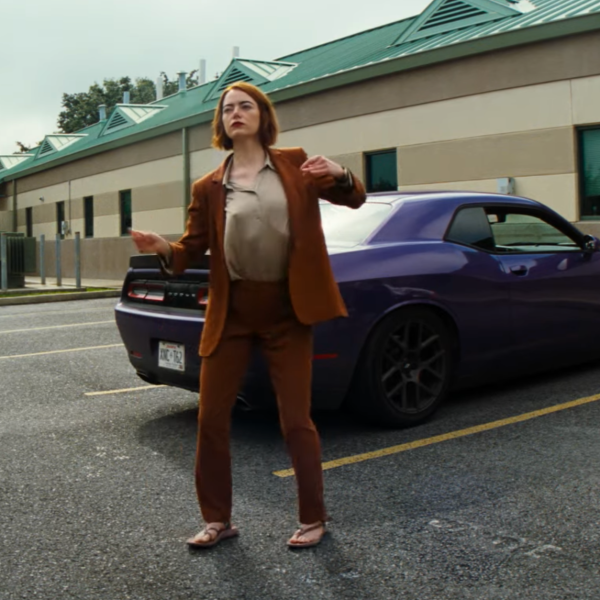[Editor’s note: Spoilers for “Inside Out 2” below.]
There’s a lot to unpack psychologically in “Inside Out 2,” (currently in theaters), which adds more emotional complexity to the franchise. This provided Pixar with imaginative visual opportunities along with a lot more screen time for teen Riley (Kensington Tallman).
Which means puberty literally takes a wrecking ball to Riley’s emotional stability, signaling the arrival of Anxiety (Maya Hawke), Envy (Ayo Edebiri), Ennui (Adèle Exarchopoulos), and Embarrassment (Paul Walter Hauser). Anxiety sees herself as an agent of change in reshaping Riley’s future in high school, and hockey camp offers the first opportunity to test her ideas. When Joy (Amy Poehler) and her front-line team of Sadness (Phyllis Smith), Anger (Lewis Black), Fear (Tony Hale), and Disgust (Liza Lapira) refuse to cooperate, Anxiety throws away Riley’s crystal-shaped Sense of Self and banishes them to her Vault of Secrets as suppressed emotions.
This sets up a battle for control of Riley’s emotional well-being that begins with Joy and her cohorts trying to rescue her Sense of Self and restore balance to her foundational Belief System: a glowing, translucent environment with a river and pulsing strings that replay Riley’s memories through waveforms. It’s here where Riley’s happiest memories reside under Joy’s leadership.
“We got really excited about going to new places in this world, specific to Riley’s age as a teenager, starting to develop her own sense of self, who you are as an individual,” director Kelsey Mann told IndieWire. “You’re being raised by other people and taking on their beliefs about the world and about yourself. And, suddenly, you go wait: What do I believe?
“And all of those memories feed those beliefs and create, kind of collectively, how you see yourself,” Mann continued. “And coming up with that imagery of the sense of self was actually the hardest design in the entire film. Partly because it was the evolving element of the story, and also it took a long time to figure out what exactly its function was. A big part of it was Riley knowing who she is but then having that questioned when she wants to be accepted by new people. I certainly did this at that age. It’s a big part of this film. And so that meant Anxiety was going to come in and try to change Riley.”

Through a series of drastic maneuvers, Anxiety shakes up Riley’s Belief System and Sense of Self (which inadvertently switches from “I’m a good person” to “I’m not good enough”). The anxious teen abandons her two besties, Bree (Sumayyah Nuriddin-Green) and Grace (Grace Lu), who are transferring to another high school, and ingratiates herself with Valentina (Lilimar Hernandez), the star high school hockey player. Then she does something unethical and recklessly tries to impress the coach (Yvette Nicole Brown) during the scrimmage to make the high school team.
Meanwhile, Joy and her cohorts retrieve the Sense of Self crystal and ride a wave of bad memories back to the Belief System (one of Pixar‘s most colorful and impressive simulated effects). But Joy is unable to restore Riley to her former self. That’s because it was a mistake to suppress Riley’s bad memories.
“You can fall into this trap as parents whenever our kids start to get hard on themselves, like, ‘Oh, I really screwed up today,’ added Mann. “You can go, ‘Oh, no, no, no, you’re great, you’re wonderful, don’t worry about that.’ You can kind of sweep it under the rug and it can feel like we’re being helpful.”
What’s worse, Anxiety suffers a panic attack that pushes Riley to her limit during the scrimmage. It’s riveting to watch. While Anxiety spins around, frantically pushing the buttons on the console (a character unto itself), Riley relentlessly tries to score a record three goals, speeding past everyone like a blur. Here, editor Maurissa Horwitz expertly cuts back and forth to reveal the breakdown from the inside out.

“All the teams came together at the end to make that [panic attack] happen,” Mann said. “That was one of the last things that we did because it’s really complex to get that kind of look when she’s going so fast because you have to work with effects and lighting. The distortion of what’s going on with Anxiety, the spinning, she’s literally like a storm being pulled, leaving a trail of blur behind her. It’s like she’s hitting every single button on the console, and they’re all happening at the same time. She’s flashing all over the place because she’s so wound up. It’s like what you physically feel when your heartbeat goes so fast.”
But it culminates with an accident on the ice and Riley being sent to the penalty box, where she’s overcome by emotion and tries to process everything that’s happened. It’s at that moment Joy realizes that she can’t control Riley. It’s up to Riley to define her Sense of Self through the sum of her beliefs and memories.
“Ultimately, what I want this film to be about is the deeper love that comes with loving every single side of you, not just the best parts,” Mann said. “And there are some shots in here that are some of my favorite shots that we’ve ever done at Pixar. There’s one particular low shot, down on her, and the depth of field that’s around her at the height of what she’s feeling that’s so emotional. And the cinematography on that [from Adam Habib, DP, camera] rivals any live-action film. It’s stunning, it’s gorgeous, and it makes me feel for her.”


